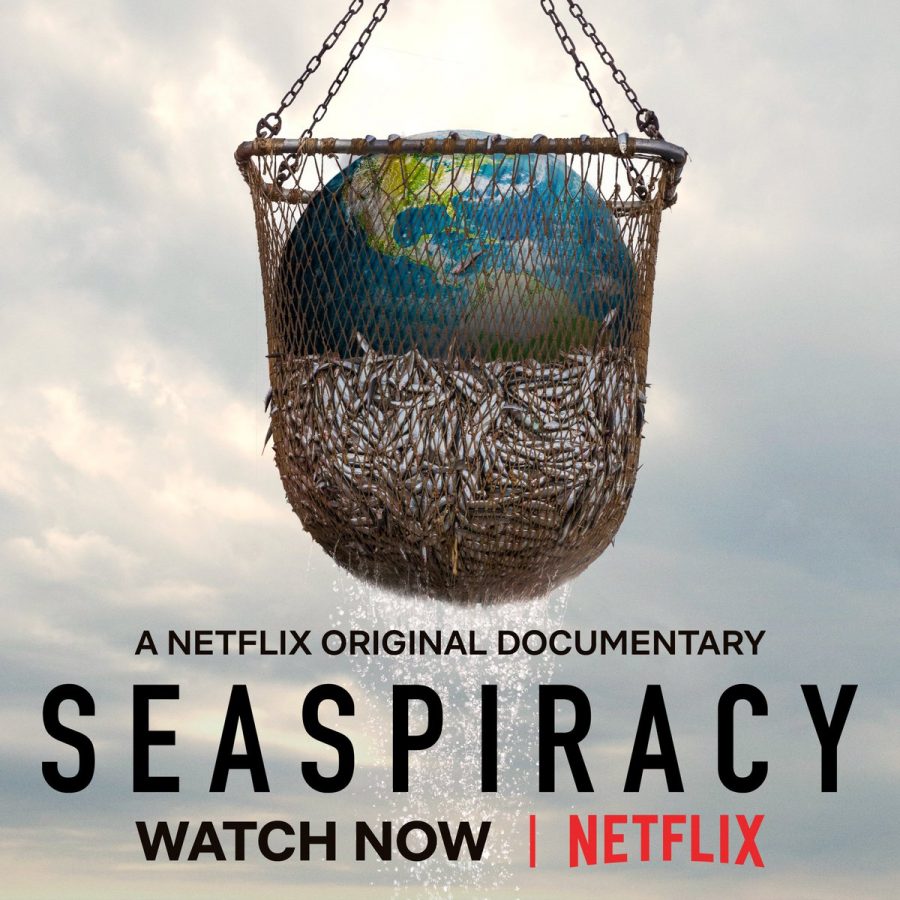“Seaspiracy:” A must watch whether it looks interesting to you or not
“Seaspiracy” is a new Netflix documentary about rising sea-life extinction rates and the dangers of commercial fishing.
Saving the ocean has been a huge movement — picking up steam after VSCO girls got #savetheturtles trending — but not everyone is well educated on the real issues. The Netflix documentary “Seaspiracy” produced by Kip Anderson discusses the impact of fishing on marine wildlife and is a must watch whether it sounds interesting to you or not.
A content warning: this film came with a lot of hard-to-watch footage: killing of whales, dolphins and other sea creatures.
While the editing of the footage was somewhat lacking, it did not take away from the real message of the documentary. This documentary was not made to fit any sort of aesthetic — it was made to inform people.
Everyone is quick to say “save the turtles,” yet use a plastic water bottles. But if anyone actually did research, which this documentary is trying to bring light to, fishing is our biggest problem. Obviously don’t litter, but also recognize that killing all our sharks or fish through commercial fishing ruins oceans more than anything else.
A hot topic discussed in the documentary is “bycatch,” a common phenomenon when fishermen are looking for specific fish they end up catching the wrong ones, having to throw them back. After being wrongfully caught, the fish or other sea creature will die almost instantly in the water again.
The point being that not enough people are talking about how fishing is the real killer in the ocean, not those plastic straws or climate change.
It talks about how our oceans could be empty by 2048, which is 27 years from now. This is a problem we will have to face in our lifetime that recycling isn’t going to fix. Fishing trends are increasing, and without everyone changing drastically, this will happen. And if it happens, I don’t want to hear anyone blaming the plastic straws.
The documentary does a great job at giving real numbers and statistics. There were a lot of interviews throughout the whole film, but there were multiple occasions when people asked the documentary crew to shut the camera off. Basically, every big company interview in the documentary seemed to avoid questions altogether or not give straight forward answers, which seems a little fishy to say the least.
The documentary goes in depth while discussing big companies that are organizations that are all about saving the ocean or preserving our wildlife. But yet none of them are talking about the destruction the fishing industry is creating. This documentary is just a great example of companies only caring about money and how so many secrets to protect harmful industries.
With a title like “Seaspiracy”, the documentary might have been a crime documentary or one about aliens, which is bigger clickbait for most people. But this documentary is way more important than all that, it’s topics no one wants to hear but needs to be said.
Additionally, before anyone says “oh it should have been conspira-sea.” No, it should not have since it’s from the same producer as cowspiracy — it’s on trend with his own style. Also talking verbally about it would cause confusion, so I don’t want to see anyone saying the name is bad.
I don’t eat fish or any sort anyways, but after watching this, I really wouldn’t want to. This is a must watch documentary for informing yourself about how our industries are destroying the planet.
5/5 stars on information
3/5 stars on editing








